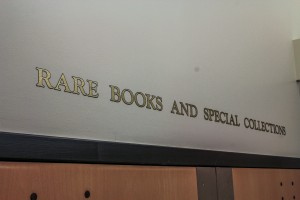With the help of a $360,000 grant from the Fred L. Emerson foundation, UR will be able to digitize the Seward Family Archive.
The archive, which is one of the most extensive firsthand accounts of 19th-century American political and social life, comes from the family of William Henry Sward (1801-1872) who was the secretary of state under Presidents Lincoln and Johnson and a U.S. senator and governor of New York.
The online archive, which consists of photographs, diaries, letters, and other papers from the family, was mostly donated from William Henry Seward III, who was the secretary of state’s grandson. Most of the source material is from the years 1730 to 1917, and gives insight into various events that shaped America into the country it is today.
According to a press release, Thomas Slaughter, the Arthur R. Miller Professor of History, stated that these documents cover “abolitionism, universal suffrage, access to education, race relations, medical practice, and the rights of the accused in the criminal justice system.” Slaughter also said that the archive “provides a portal to 19th-century family life as well.”
Director of the Digital Humanities Center Nora Dimmock stated that the grant will “provide the library and the project with an archival intern, who will reorganize the material and speed up the transcription process. The grant will also fund the managing editor (who will be a graduate student) for the project.”
“The main goal of the project is to scan, digitize, transcribe, and create a website for the project,” Dimmock said.
The group aims for 15% of the transcriptions of the Seward Family papers to be done within the first year. The goal is to have 40% done by the end of the third year.
The press release also credited vice provost Mary Ann Mavrinac and Deans of the River Campus Libraries Andrew H. and Janet Dayton Neilly as stating that “The William Henry Seward Collection is the largest and most-consulted special collection in Rush Rhees Library.”
Mavrinac also said that, in 1987, the Emerson foundation donated a significant amount of President Lincoln’s letters, which had been acquired from the Seward family, to William Seward.
“The project is special because it represents a new relationship with the library to collaborate with faculty and students,” Dimmock said. “This project presents new experiences for students in documentary editing, website development and design, and scholarly encoding practices.”
Teitelman is a member of
the class of 2016.
